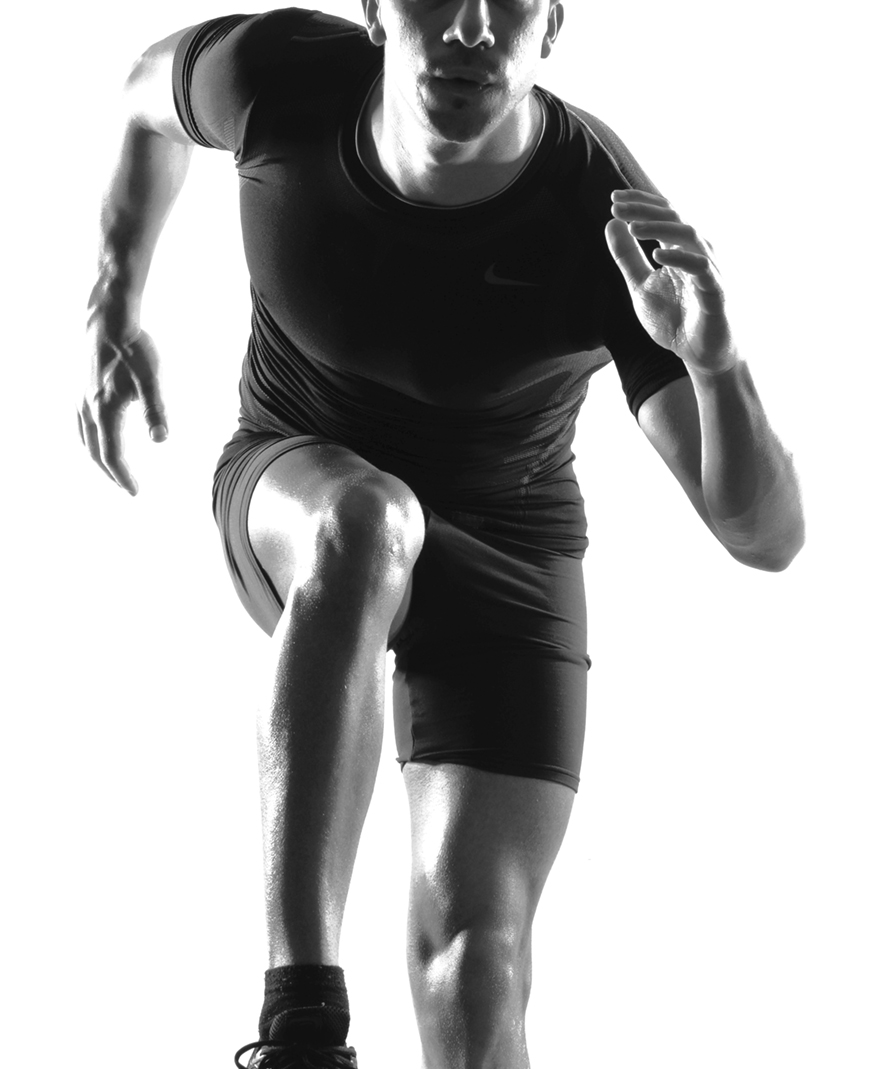Sports and competition are often considered a macho combination for males of all ages. However, for David Helsel of Windermere-Gotha and Ernie Broennle of Oviedo, triathlons are more about a commitment to fitness and beating their biggest competitors: themselves.
From School Sports to Adult Athletics
It all started for Helsel when he was a student at Dr. Phillips High School. Throughout his high school years he was a competitive swimmer – a four-time All-American, in fact. His commitment to the sport didn’t end when he walked across the graduation stage either.
“Some people who did sports as a kid or in college just stop,” Helsel says. “I never did. When I swim, I get into a rhythm. I can’t see myself ever not swimming.”
As an adult, he became a regular at Lucky’s Lake Swim. This 1-kilometer, open-water swim is held every day but Sunday at Lucky and Jacquie Meisenheimer’s estate on Lake Cane. Experienced swimmers have been joining this informal swimming event since 1989.
As for adding the other physical aspects of a triathlon to his routine, Helsel took them on with the support of those closest to him. One of his friends encouraged him to start biking, so he did. Since his wife Theresa was a cross-country runner, he would occasionally run with her.
“So, in essence, I already had all the elements,” he says. “All I had to do was put them together. I was getting bored with my exercise routine, so when my buddy asked me if I wanted to do a triathlon, I said, ‘Sure.’”
Getting Back in the Game
Broennle’s entry into triathlons was a bit different. It happened more slowly. A former soccer player in college, he didn’t continue with the sport, or any other sport for that matter, once he received his degree.
“I like to say I was sitting on the couch for 15 years before I got into triathlons,” Broennle says. “It’s a joke, but it’s also slightly true.”
Part of his problem was his lack of a goal. He also didn’t consider exercise fun any more. Overweight and bit depressed, Broennle took a friend’s suggestion to start training for a sprint triathlon. Much less intimidating than a half or full IRONMAN triathlon, the sprint consists of half-mile swim, 12-mile bike and 3.1-mile run and allows beginners to ease into the sport.
“Once I started training, I really liked the way I felt,” Broennle says. “I liked feeling sore from a good workout or run. I don’t know what it was, endorphins probably, but I found my calling.”
Looking at him now, you would never think of Broennle as a couch potato. Since his entry into triathlon training, he has lost 60 pounds, and he says he found muscles he hadn’t used in years. Like most triathletes, he says he is hooked on healthy eating, weight and endurance training, and, most importantly, self-discipline.
Since 2010, Broennle has competed in countless sprint triathlons. Now he has graduated to the IRONMAN variety. In the triathlon community, IRONMAN races are at the top of the food chain with races scheduled both nationally and internationally throughout the year. An IRONMAN triathlon consists of a 2.4-mile swim, a 112-mile bike and a 26.2-mile run.
Like most triathletes, it is Broennle’s dream to qualify for the IRONMAN World Championship held yearly in Kailua-Kona, Hawaii. Only the best of the best make it to race day for this IRONMAN event.
“The [Kona] Ironman is the Mac Daddy,” Broennle says. “I hope to get there some day.”
What Triathlons Can Teach
Both men agree that triathlons aren’t for everyone. If you want to get serious about the sport, it’s best to have your family behind you 100 percent.
“It takes a huge commitment from not just you but [from] your whole family to be a triathlete,” Broennle says. “I could not do what I do without the support of my family, especially my wife, Tauni.”
With four children ranging in age from 11 to 16 years old, Broennle has to carve out time to train around his dad duties. He has also found a way to integrate training and being a dad by encouraging, offering training guidance and being a cheerleader for all four of his kids in their own triathlons.
“What could be better than watching your son or daughter cross that finish line and knowing that you helped get them there,” Broennle says. “That you hopefully started a lifelong love of physical fitness and a drive to push themselves just a little bit more?”
It’s evident that team sports are a useful tool in teaching children about the importance of each player’s role in achieving the team’s overall goal. Training for triathlons teaches similar values plus others.
“With triathlon training, kids get variety and they learn about personal responsibility,” Broennle says.
According to Helsel, triathlons involve more than just blood, sweat and tears. This sport can also take up a lot of time, money and sometimes requires travel. But what triathletes get back is a community of like-minded people and an opportunity to see new places from a different perspective.
“I’ve made some great friends from triathlon training,” Helsel says. “It really is a community of people that believe in fitness and fun.”
While winning is great, it’s not necessarily the main goal. Both men say beating their personal best is often at the forefront of their minds.
“I may be competing with other athletes, but the guy I want to beat the most is me,” Broennle says.






Comments